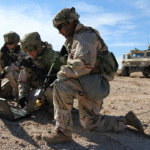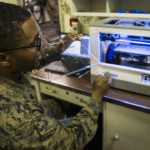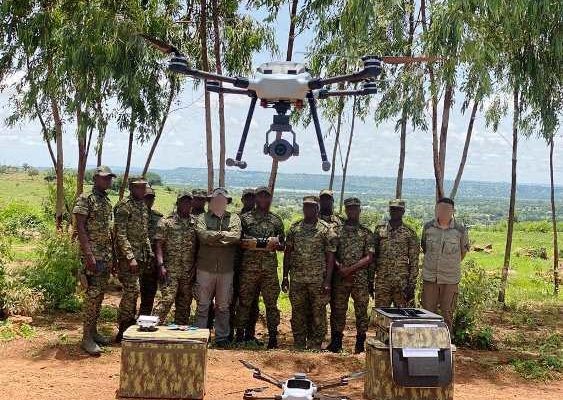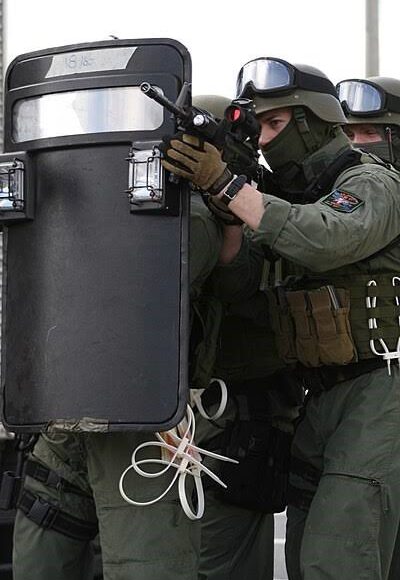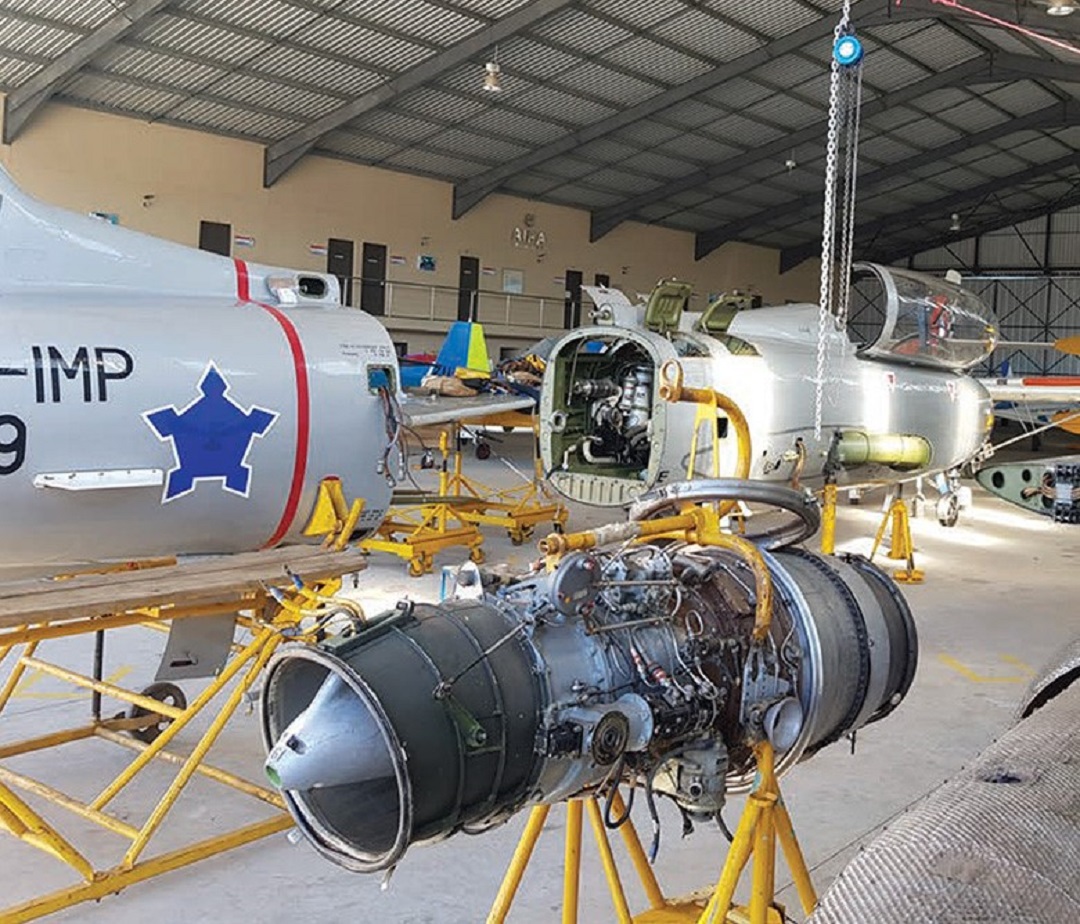
NAVIGATING THE SKIES: WHY MILITARY AIRCRAFT MAINTENANCE IS AFRICA’S NEXT AVIATION IMPERATIVE
Africa’s aviation industry is at a defining moment. On one side, commercial air travel is booming feeding economies, creating jobs, and expanding connectivity. On the other, the continent’s military aviation sector faces mounting pressure to maintain readiness amid growing security challenges. Together, they reveal a single truth: the future of Africa’s skies depends on robust aircraft maintenance, particularly in the military domain.
The numbers speak volumes. Aviation already adds more than USD 75 billion to Africa’s GDP and supports over 8 million jobs. By 2025, passenger numbers are expected to hit 113 million, a 15% jump in just one year. The International Air Transport Association predicts traffic will double again by 2044, propelled by urban growth and regional integration. Infrastructure projects like Ethiopia’s $10 billion Bishoftu Airport or Morocco’s expanding hub in Casablanca underscore this momentum. Airlines such as Ethiopian Airlines and Royal Air Maroc are not only upgrading fleets but also embracing innovations like electric vertical take-off and landing aircraft for urban mobility.
Related Article: BREAKING BARRIERS IN THE SKIES
Yet, growth in the skies also magnifies the need for efficient ground support. Maintenance, Repair, and Overhaul MRO is no longer a back-end necessity. It has become the backbone of safe and sustainable aviation. For the military, it is even more urgent. With rising insurgencies, border tensions, and peacekeeping missions across the continent, operational readiness can make the difference between stability and vulnerability.
Africa’s MRO market holds immense potential but remains fragmented. Much of the continent’s maintenance work is outsourced abroad, draining an estimated $2.5 billion every year. Civilian airlines may absorb these costs, but military fleets often pay a steeper price. Fighter jets, transport planes, and attack helicopters are grounded for months awaiting parts or foreign technicians. Egypt stands out as a leader, holding 18% of Africa’s MRO market, anchored by facilities like Egypt Air Maintenance & Engineering, which services both civilian and military fleets. But elsewhere, underfunding and logistics bottlenecks leave critical aircraft idle. South Africa’s Air Force has seen more than half its Saab Gripen fighters grounded since 2021 due to budget cuts and lapsed contracts. Of its 11 Rooivalk attack helicopters, only four remain airworthy. Similar stories echo across the region: Kenya operates 80 aircraft across 18 types, while Zambia maintains 16 different platforms in a fleet of 100 an administrative and training nightmare.
Despite the challenges, several nations are charting a course toward greater self-reliance. Nigeria is investing heavily in its air force, targeting 90% fleet serviceability by 2025 and building a $38 million A-29 Super Tucano facility at Kainji Air Base. Morocco is positioning itself as a regional hub, establishing facilities to service F-16s and C-130s, leveraging its geographic advantage. Uganda recently completed a local overhaul of a Mi-24 helicopter, while Niger, with U.S. backing, is training crews to maintain C-130
transports. South Africa’s Denel SOC Ltd., along with international players like Dassault Aviation and Saab, continues to provide technical expertise. These collaborations highlight a growing recognition: investing in maintenance is not just about saving money it’s about sovereignty and security.
One of the most promising initiatives is the joint MRO program launched by five African airlines Royal Air Maroc, Ethiopian Airlines, Egypt Air, Kenya Airways, and SAA Technical. By pooling resources, they aim to reduce reliance on foreign facilities, cut costs, and create thousands of local jobs. If successful, the program could reclaim billions currently lost to outsourcing and build the foundation of a pan-African maintenance network. Still, the hurdles are real. Infrastructure deficits persist, and the brain drain of skilled engineers to higher-paying overseas jobs remains a thorny problem. Political will and healthy cooperation among competitors will ultimately decide whether this collaboration thrives or stalls.
Globally, the military MRO market is projected to hit $145 billion by 2034, and Africa has an opportunity to capture part of that growth if it invests in training. At present, countries like Nigeria produce far too few licensed engineers to meet even current demand. Regional hubs in Ethiopia, Kenya, and South Africa are already attracting third-party maintenance contracts, creating economies of scale. As more African nations modernize their fleets ten countries expanded their military aircraft inventories in 2025 alone the demand for sustainable financing models, including public-private partnerships, will only grow.
The message is clear: Africa’s aviation future is not just about adding runways, buying planes, or moving more passengers. It is about ensuring that both commercial and military aircraft are well-maintained, mission-ready, and strategically leveraged. Strong maintenance capacity protects not only economic growth but also national and regional security.
King Richard Igimoh, Group Editor ALO
King Richard Igimoh, Group Editor African Leadership Organisation is an award-winning journalist, editor, and publisher with over two decades of expertise in political, defence, and international affairs reporting. As Group Editor of the African Leadership Organisation—publishers of African Leadership Magazine, African Defence & Security Magazine, and Africa Projects Magazine—he delivers incisive coverage that amplifies Africa’s voice in global security, policy, and leadership discourse. He provides frontline editorial coverage of high-profile international events, including the ALM Persons of the Year, the African Summit, and the African Business and Leadership Awards (ABLA) in London, as well as the International Forum for African and Caribbean Leadership (IFAL) in New York City during the United Nations General Assembly.
Recent Posts
Categories
- Air & Aerospace16
- Border Security15
- Civil Security4
- Civil Wars4
- Crisis5
- Cyber Security8
- Defense19
- Diplomacy19
- Entrepreneurship1
- Events5
- Global Security Watch6
- Industry8
- Land & Army8
- Leadership & Training5
- Military Aviation5
- Military History27
- Military Speeches1
- More1
- Naval & Maritime9
- Resources2
- Security12
- Special Forces1
- Systems And Technology9
- Tech6
- Uncategorized3
- UNSC1
- Veterans6
- Women in Defence9
Related Articles
THE RISE OF ELECTRONIC SURVEILLANCE IN AFRICAN MILITARIES
African militaries are rapidly expanding their use of electronic surveillance as they...
ByKing Richard Igimoh, Group Editor ALOJanuary 8, 2026HOW COLONIAL RULE SHAPED AFRICA’S MODERN MILITARIES
Africa’s contemporary military institutions are deeply rooted in structures created during colonial...
ByKing Richard Igimoh, Group Editor ALOJanuary 1, 2026AFRICA’S EXPANDING ROLE IN MULTINATIONAL MILITARY EXERCISES IN 2025
In 2025, Africa became a central stage for multinational military cooperation, reflecting...
ByKing Richard Igimoh, Group Editor ALODecember 31, 2025MODERN MILITARY UNIFORMS BECOME HIGH-TECH SHIELDS FOR THE BATTLEFIELD
Modern military uniforms have undergone a quiet revolution. No longer just fabric...
ByKing Richard Igimoh, Group Editor ALONovember 20, 2025



